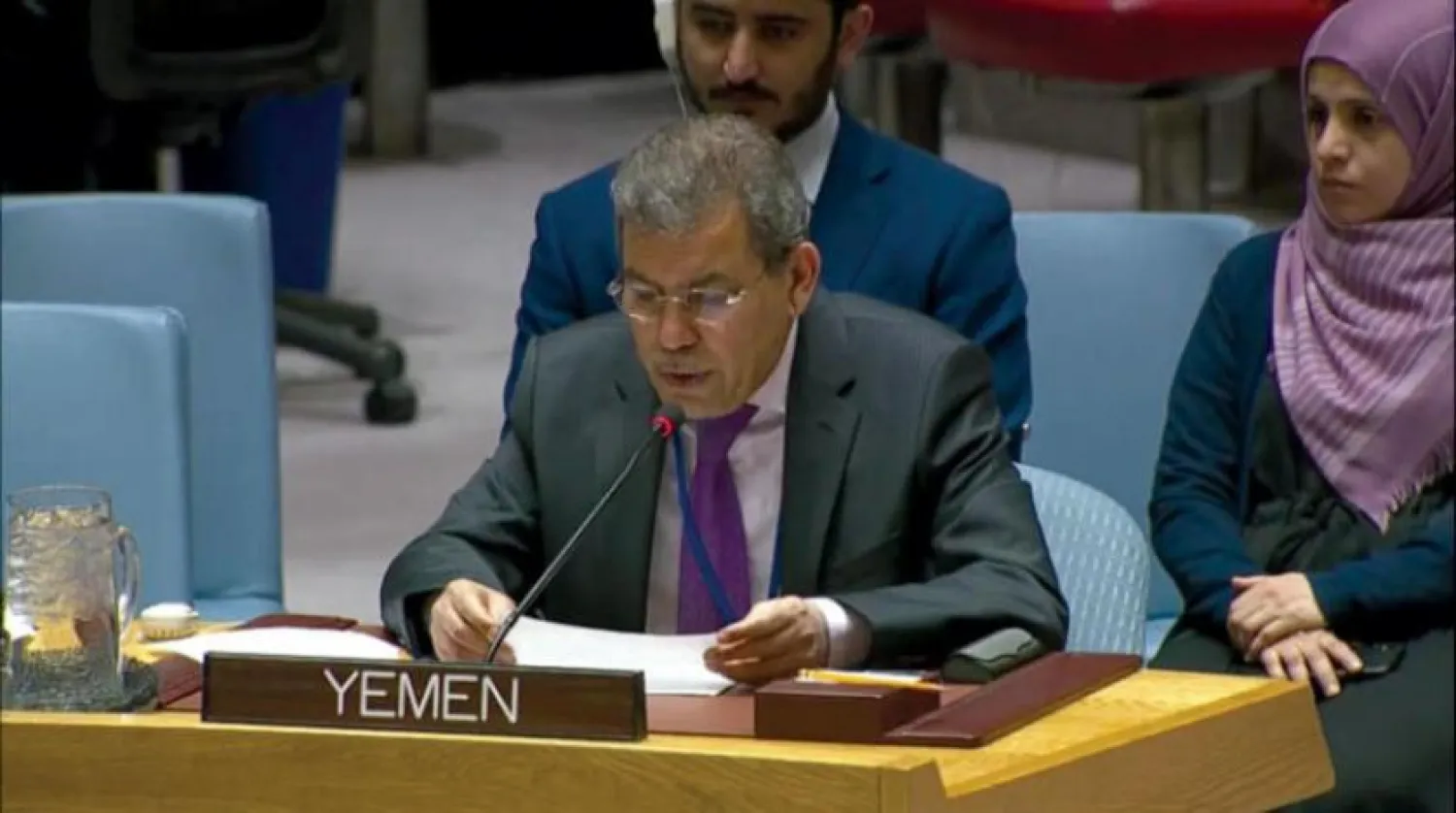The United Nations Security Council has responded positively to demands made by the Yemeni foreign ministry to separate the derelict Safer oil tanker issue from other political matters in Yemen.
The UNSC decided to hold a session on July 15 amid Yemeni optimism that member states will take decisive measures to dodge a potential disaster.
Yemen's UN Permanent Representative Ambassador Abdullah Al-Saadi confirmed to Asharq Al-Awsat that the UNSC has responded positively to demands put forth by the Yemeni government regarding the Safer oil tanker.
“The topic received the UNSC’s attention, and next week will witness developments in the discussion of this issue leading to appropriate measures,” Saadi said.
He pointed out that the Yemeni government has continuously warned the UNSC about the pending environmental and economic catastrophe that could occur should an oil leak happen at the rundown oil tanker.
The ambassador underlined that Iran-backed Houthi militias, who currently control accesses to Safer, had refused all proposals put forth by UN Special Envoy Martin Griffiths to resolve the threat of an oil spill.
This has pushed the Yemeni government to send a number of letters to the Security Council and the UN chief to warn of the pending environmental, humanitarian and economic crisis.
Saadi explained that a solution to Safer is not a political matter, but rather a humanitarian and economic issue, calling on the UNSC to take necessary and urgent measures, and carry out its responsibilities.
He explained that Houthis are looking to tie Safer to their political agenda in Yemen, which will delay a solution for the derelict oil tanker.
“Griffiths presented a separate proposal earlier on tackling the Safer problem and the Yemeni government agreed to it, but the Houthis refused his proposals, including the ceasefire and confidence-building measures,” Saadi revealed.









